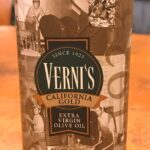The health benefits of eating organic fruit and the environmental benefits of organic farms are well-known and documented.
Are there any situations when it makes sense Not to buy organic fruit?
Reason #1: Organic fruit is not available in your area.
 One of the primarily reasons people do not buy organic fruit is that unfortunately buying organic fruit in the grocery store not an option in many areas.
One of the primarily reasons people do not buy organic fruit is that unfortunately buying organic fruit in the grocery store not an option in many areas.
The only way to buy organic fruit may be online, which may be cost-prohibitive to many people because fruit is heavy, bulky, perishable, and expensive to ship.
Many are not comfortable buying fruit online because people want to be able to see fruit, smell it, and touch it to ensure freshness.
Reason #2: Organic fruit is cost-prohibitive.
Sadly, in today’s economic conditions the cost of growing fruit organically is often much higher than “conventionally” grown fruit.
For this reason buying organic fruit is typically more expensive.
During challenging economic times, when a choice has to be made between non-organic fruit and no fruit, buying non-organic fruit is a justifiable option.
Reason #3: Organic fruit doesn’t look as large, colorful, clean, and shiny.
The reality is that truly sustainably grown organic fruit is not “pretty.”
Because organic fruit is not sprayed, washed, waxed, or chemically-treated to achieve specific “marketable” appearance, it might appear imperfect and might have visible cosmetic defects.
Some people don’t like the perceived cosmetic defects of organic fruit and interpret is as fruit being bad.
In reality, cosmetic defects are often an indication of naturally-grown fruit. If fruit in the supermarket looks too perfect, it raises questions about artificial ripening, artificial colors and coatings.
Reason #4: You don’t mind eating chemicals and artificial ingredients.
Some people are not very picky about their diet, the quality and the nutritional value of the food they eat. If your diet primarily consists of super-sweet cereal, processed meats, soda, chips, donuts, and fast food, it probably doesn’t make sense to spend extra money and effort to buy organic fruit.
If you eat mostly junk food, it doesn’t make sense to spend more to buy organic fruit.
Reason #5: You eat very few fruit and vegetables.
Reason #6: You are not convinced of the benefits of buying organic fruit.
Reason #7: Organic designation doesn’t guarantee “pesticide-free.”
 Organic food must be produced without the use of conventional pesticides, petroleum-based fertilizers, sewage-sludge-based fertilizers, herbicides, genetic engineering (biotechnology), antibiotics, growth hormones, or irradiation.
Organic food must be produced without the use of conventional pesticides, petroleum-based fertilizers, sewage-sludge-based fertilizers, herbicides, genetic engineering (biotechnology), antibiotics, growth hormones, or irradiation.
Animals raised on an organic operation must meet animal health welfare standards, not be fed antibiotics or growth hormones, be fed 100% organic feed, and must be provided access to the outdoors.
Land must have no prohibited substances applied to it for at least three years before the harvest of an organic crop.
Organic production systems do not use genetically modified (GM) seed, synthetic pesticides or fertilizers.
Some people argue that there are still a limited amount of specific pesticides that are permitted in organic agriculture, and, therefore, because organic food is not technically guaranteed to be pesticide free, buying organic food does not offer any health benefits.
This is black and white thinking that unfortunately doesn’t recognize how important it is to reduce our exposure to potentially damaging substances over a lifetime, even if we don’t completely eliminate it.
Reason #8: Organic designation doesn’t necessarily mean “small local farms.”
 Some people claim that organic produce is often intentionally misrepresented as coming from small local farms when it is not.
Some people claim that organic produce is often intentionally misrepresented as coming from small local farms when it is not.
Unfortunately, as the popularity of organic produce grows, large agribusiness firms are penetrating the market and industrializing organic production. Many people believe that agribusiness penetration is lowering organic standards.
Because agribusiness is purely profit-oriented, it uses allowable chemicals in order to get the organic label but otherwise relies on industrial mode of agriculture.
Agribusinesses are able to operate on large parcels and use mechanized production that resembles conventional farming.
Supermarkets are most likely to buy from large agribusinesses because they can utilize their conventional distribution connections and systems. This leaves small farmers who are growing intrinsically and truly organic produce to be limited to reaching customers at farmers’ markets, subscription boxes, and direct arrangements with restaurants and consumers.
For this reason organic fruit bought from a supermarket will probably have very different quality, taste, and nutritional value compared to organic fruit bought directly from the grower at the farmer’s market.
Reason #9: Organic designation doesn’t necessarily mean “good for the environment.”
It is well known and documented that organic farming can be beneficial for biodiversity and environmental protection at the local level.
However, some people claim that organic farming has lower yields compared to conventional farming (which is not always true). For this reason more agricultural land is needed to produce the same amount of food, which means that natural land has to be converted into agricultural land.
Some people believe that this can cause loss of biodiversity and negative climate effects that outweigh the local environmental gains achieved.
There is no straightforward data to prove or disprove this claim and the debate goes on.
Primarily the challenge with all these points is that people are looking for a straightforward one-size-fits-all solution that doesn’t exist. There are so many variables: the type of the crop, the climate, the environmental conditions, the costs, the equipment, the market, etc.
Reason #10: Organic food is more challenging to produce.
Most scientists and farmers who speak out against organic agriculture and not disagreeing that organic food is healthier for both humans and the environment.
Most everyone agrees that moving towards regenerative, bio-dynamic agriculture is a good thing for the environment in general.
What they are objecting to is that organic way of agriculture does not work for them economically. At least in the short term it might not financially make sense for their specific crop in their specific location.
Reason #11: Organic food is not necessarily good for animals welfare.
Because organic farming can not rely on “synthetic” chemicals, it often relies heavily on “organic” chemicals which are animal products or by-products, such as blood meal, bone meal, feather meal, fish meal, fish emulsion, shrimp compost, and manure.
Veganic farming uses plant-based techniques for soil health and improved yields, such as mulch, vegetable compost, green manure, chipped branched wood, crop rotation, polyculture, and other techniques that are sustainable and do not rely on the exploitation of animals.
Veganic is not necessarily organic because it might incorporate some synthetic materials and organic is not necessarily veganic because it might incorporate some animal by-products.
So Should I Buy Organic Fruit or Not?
There is really no one right answer on whether a specific person or family should be buying organic fruit. It depends on their individual health conditions and challenges, financial situation, and personal values.
Maybe instead of labeling Organic “good” or “bad,” we need to look outside the box and identify solutions that benefits consumers, farmers, and the planet.
Join the Conversation:
What are your thoughts, experiences, and challenges? Do you have other reasons not to buy organic fruit?
We would love to hear from you.
Fresh Chemical-Free Fruit from California Farm:
-

Organic Sage Leaves – Fresh Wildcrafted Purple Sage from California – Unwaxed Unsprayed Chemical-Free Veganic Non-GMO
$5.99 – $49.99 — available on subscription -

Organic Persimmons – Maru – “Chocolate Persimmon” – Unwaxed Unsprayed Chemical-Free Veganic Non-GMO – 4lbs
$24.99 — available on subscription -

Get Well Soon Gift Box – Organic Lemons and Honey from California Farm
$24.99 — available on subscription -

Extra Virgin Olive Oil – California Gold – Organically Grown and Cold Pressed on a Family Farm in California – 500ml
$14.99 — available on subscription
- Vigar V, Myers S, Oliver C, Arellano J, Robinson S, Leifert C. A Systematic Review of Organic Versus Conventional Food Consumption: Is There a Measurable Benefit on Human Health? Nutrients. 2019 Dec 18;12(1):7. doi: 10.3390/nu12010007. PMID: 31861431; PMCID: PMC7019963. [↩]

